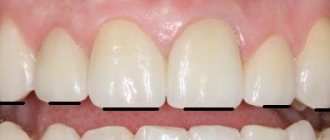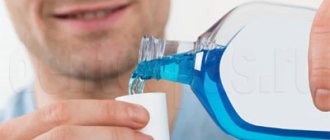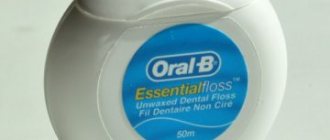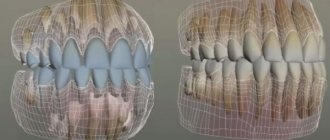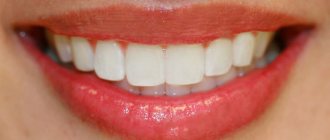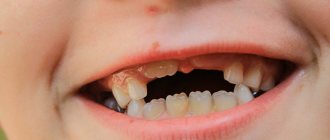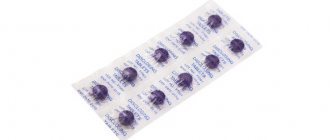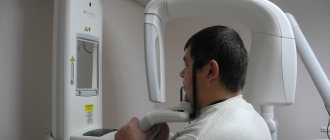Oral care is an important rule for every person. Caries, increased sensitivity of teeth, bad breath. These are the consequences of non-compliance with personal hygiene rules and improper oral care. Teeth brushing is necessary at any age. This procedure helps remove plaque, destroys pathogenic microflora and prevents the development of diseases associated with teeth and gums. But you need to brush your teeth correctly, otherwise you won’t achieve the expected effect.
Oral care rules
The rules for oral care are quite simple. The first thing to remember is to brush your teeth at least twice a day. It is recommended to pay special attention to morning procedures: during the night, enzymes accumulate in the oral cavity, destroying tooth enamel and causing inflammation of the gums.
The second point is the right choice of toothbrush. These products differ in the stiffness of the bristles, so they are selected individually depending on the age and characteristics of the person. For example, hard bristles are suitable only for healthy people with strong tooth enamel. For the rest, it is better to give preference to brushes with medium-hard bristles. Special products with soft bristles are produced for children. You need to change the brush every 3 months; if the bristles are made of natural material, then more often.
Particular attention should be paid to the choice of toothpaste. According to their purpose, they are divided into 3 groups:
- Hygienic – freshen breath, remove food debris and tartar;
- Preventive – the composition includes biocomplexes, extracts of medicinal plants and beneficial enzymes;
- Medicinal - prescribed by a doctor, used strictly in courses: no more than 1-2 months.
In addition, it is recommended to make an appointment with your dentist every six months for a preventive examination. Many doctors recommend using irrigators for oral care. These devices supply water or a special liquid under pressure, which ensures high-quality treatment of even hard-to-reach areas and the space between teeth.
Professional care
At an appointment with a specialist, teeth are cleaned with ultrasound.
A special device will remove plaque from the enamel and formed stones at the base of the teeth and under the gums. This procedure is virtually painless. You can't do this yourself. Stones and plaque appear after drinking tea, coffee, and cigarettes. The doctor will check the oral cavity for diseases (periodontal disease) and damage to the enamel (caries). If necessary, he will select the correct treatment and recommend proper dental care.
To strengthen tooth enamel, a specialist can perform fluoridation. It can be ordinary and deep, when special preparations are placed at the base of the tooth, which quickly restores the enamel.
Teeth whitening is carried out using the Air Flow system. It allows you to restore the natural color of your teeth and destroys bacteria. A special sandblasting machine is used, inside of which there is a special solution and an abrasive mixture. With its help, plaque is removed and tooth enamel is polished.
Child dental care
Caring for a child’s oral cavity begins with the appearance of the first milk teeth. This rule cannot be neglected, because temporary teeth are also affected by caries and destroyed. As a result, the healthy microflora of the oral cavity is disrupted, which can provoke the development of more serious diseases.
For babies under one year old, teeth are cleaned with silicone brushes or sterile gauze wipes, while massaging the gums. Children aged 1-3 years can easily cope with this task on their own. The main thing is to interest the baby by telling him a fairy tale about the benefits of brushing his teeth or showing him a cartoon on this topic. The brush is chosen with soft artificial bristles and a wide rubberized handle so that it does not slip out of children's hands.
For older children, choose a brush with medium-hard bristles. Here you need to make sure that the child does not forget to brush his teeth twice a day, devoting at least 3 minutes to each procedure.
Starting from the age of 6, children can use irrigators to care for the oral cavity. This type of teeth cleaning can be turned into a fun game, but the procedure should only be carried out under adult supervision. Irrigators are very popular with children of any age, and such devices are 90% more effective in removing food debris and preventing the appearance of tartar.
General hygiene rules
There are simple rules for caring for your teeth and oral cavity. They must be taught from early childhood. The best thing is the example of adults. Forming such a habit is a very important step in creating a “Hollywood smile” in the future. To do this you need:
- Brush your teeth thoroughly every morning. The second time must be before bedtime;
- after snacks, clean with a special thread (floss);
- use fluoride-containing pastes;
- visit the dentist 2 times a year.
Proper nutrition is also important to keep your mouth healthy. A lack of fluoride can lead to premature destruction of tooth enamel. Products containing many chemical fillers (chips, crackers, carbonated sweet water) negatively affect the appearance of teeth and lead to darkening.
Caring for the patient's oral cavity
People suffering from serious illnesses should never give up brushing their teeth every day. If the patient cannot perform this procedure independently, relatives or nurses help him. Mandatory oral care for the patient is due to the fact that in the absence of hygiene procedures, pathogenic bacteria multiply on the mucous membranes, which negatively affects the general condition of the patient.
Brushes with soft bristles are usually used for the procedure so as not to accidentally injure the gums. If the person is weakened or paralyzed, cotton balls or swabs can be used. After completing the procedure, the mouth is rinsed with a 0.5% solution of baking soda or 0.9% saline solution.
The use of irrigators will help simplify this task. Such devices provide high-quality oral care and are suitable for hygienic treatment of dentures and braces.
List of necessary daily caring actions
The choice of complex and frequency of hygiene procedures depends on the condition of the seriously ill patient. It is very important to understand what actions the patient is able to perform independently, so as not to lose the skills that are still available. Every morning, the caregiver should:
- wake up the patient;
- help relieve natural need;
- wash the genitals, change the diaper if necessary;
- carry out hygiene procedures - toilet the eyes, nose, mouth, ears;
- wipe the armpits, areas under the breasts in women;
- comb hair;
- straighten the bed, pajamas;
- prevent bedsores;
- measure physiological indicators;
- feed the patient;
- help take medications;
- follow the doctor’s individual recommendations.
Careful hygienic care ensures the comfort and well-being of a bedridden patient.
In contact with
improvement in general health
The key to improving dental health lies in our daily habits. Brushing and flossing your teeth daily helps remove plaque buildup. Regular visits to the dentist will help get rid of tartar and buildup in hard-to-reach places and will also help prevent gum disease. However, good oral hygiene is not enough to treat active and advanced periodontal disease. Regular dental visits reduce the risk of tooth decay, bad breath and other problems, which improves your overall health.
ATTENTION!
For patients who care about the oral cavity and the health of the body as a whole, we have prepared an incentive. You can see the cost of professional hygiene here. For you, professional oral hygiene at a special price of 3000 rubles. + a brush as a gift when registering at the KIT department on Yubileinaya, as well as 3500 rubles. when registering at the KIT departments on Sukromka and KIT on Sharapovsky Proezd. To take advantage of the offer, fill out the form below, get a consultation and take the first step towards dental health and protecting your body's long-term health.
FAQ
How often do you do oral hygiene?
To avoid caries and extend the life of fillings and other artificial structures, it is necessary to regularly carry out professional oral hygiene. The optimal period is once every 6 months. In some cases - more often. Depends on the rate of accumulation of dental plaque. For more detailed information and to determine your dental condition, make an appointment with a dental hygienist.
How is oral hygiene performed in dentistry?
The ability to effectively remove plaque buildup using airflow is a huge step in the prevention and treatment of gingivitis and periodontitis. Air-flow is fast, painless and silent. In addition to removing stains, airflow is used to clean orthodontic braces, as well as to clean implant sites and crowns to prolong the life of implants and orthotics. The air-flow technique involves the use of an air-powder mixture, which is combined with water spray, which eliminates plaque and stains. Because it is non-abrasive, which does not cause discomfort even for sensitive gums. Next, the teeth are polished with a brush and pastes. Microbes cling less easily to the smooth surface of teeth, and dental deposits accumulate less and more slowly. The final stage is to coat the teeth with a remineralizing composition. It can be fluoride or calcium based. At the end of the procedure, the teeth become smooth, brighten by 0.5-1 tone, and a feeling of freshness appears.
What should you not eat after oral hygiene?
At the end of professional hygiene, the teeth must be covered with strengthening preparations (fluoridation and remineralization are carried out), so you need to wait a couple of hours to allow the compounds to be absorbed and not damage the protective film. After cleaning, the enamel becomes porous and pigments from products are more absorbed into it. Therefore, you should refrain from foods and drinks that can stain the enamel for at least a day to maintain the effect of clean and white teeth.
How to maintain proper oral hygiene and use a brush and floss?
Individual oral hygiene is carried out at home using a toothbrush, floss and mouth rinse. Let's look at the basic recommendations for oral hygiene.
- The process of brushing your teeth doesn't have to be quick. When you brush your teeth, take your time. It is not recommended to brush your teeth immediately after eating, especially if you ate something sour, such as grapefruit. You need to brush your teeth for at least two minutes. Also remember to brush the outer, inner and chewing surfaces of your teeth and tongue.
- Hold the toothbrush at a slight angle and brush in short sweeping motions from the gum to the incisal (chewing) edge. Brushing too hard or using harsh bristles can harm your gums. Use the right brush and toothpaste. When choosing a brush, it is better to consult your dentist.
- Don't ignore dental floss. It fights stuck food and plaque between teeth. The advantage of floss is that you can carry it with you when you can’t brush your teeth with a brush.
- In addition to daily brushing and flossing, use a mouthwash. Regular use of mouthwash freshens breath and fights plaque and gingivitis. For optimal results, use the oral liquid twice a day and hold it in your mouth for 30 seconds, this will reduce the threat of gum disease by 60%.
- Always rinse your toothbrush with water after brushing. Store the brush upright and let it dry before using it again. Try to store it separately from other brushes to prevent cross-contamination. Toothbrushes should not be covered regularly or stored in closed containers, as this may encourage the growth of bacteria, mold and yeast. Change the brush or the replacement head of your electric brush in time every three months.
How to use a toothbrush correctly [1,2]
The best way to learn how to properly brush your teeth is to visit your dentist or hygienist. Consultation is especially important for people with braces, dentures, dentition defects, etc.
Standard recommendations include several cleaning steps, none of which should be skipped.
- Wet a toothbrush and apply a pea-sized amount of toothpaste. Place the toothbrush at a 45 degree angle to the surface of the teeth. Start cleaning movements from the upper right chewing teeth (the farthest ones) and from the side of the cheek, then from the side of the tongue, sequentially moving to the front ones. Using a toothbrush, make sweeping movements from the gum to the edge of the tooth.
- Move to the chewing surface and brush it by moving the toothbrush horizontally back and forth. Try to penetrate as deeply as possible.
- Continue brushing the lower chewing teeth and then the entire lower jaw.
- Close your jaws and massage the gums of both jaws in a circular motion.
- Final stage: use a special scraper or pad on the back of the toothbrush head to clean the surface of the tongue.
- Clean between teeth using dental floss or tape. Then use mouthwash.
- After each meal, also rinse your mouth thoroughly with clean water or mouthwash.
Medical expert: Oleg Sergeevich Shchekin
Last updated: July 21, 2021
How does oral hygiene change with age?
Age is not kind to teeth. Just like the musculoskeletal system, teeth and gums wear and change with age. Diseases, one-sided nutrition and medications, unfortunately, leave their mark: they lead to dry mouth and reduce salivation. And the latter is very important due to its antibacterial properties, which inhibit the growth of bacteria that cause caries and periodontal disease. In addition, saliva regulates the acid-base balance in the mouth and helps reduce the effects of acids responsible for disrupting the mineralization of tooth enamel and the occurrence of caries.
Rules for choosing toothpaste
If the brush cleans all dirt mechanically, then the functions of toothpaste are much broader. Many people prefer universal options, which, according to the manufacturer, do everything at once; clean, whiten, freshen breath, treat and prevent various diseases. As a rule, such pastes are not medicinal and actually partially solve all of the above problems. Universal toothpastes are safe and suitable for people without serious dental problems.
